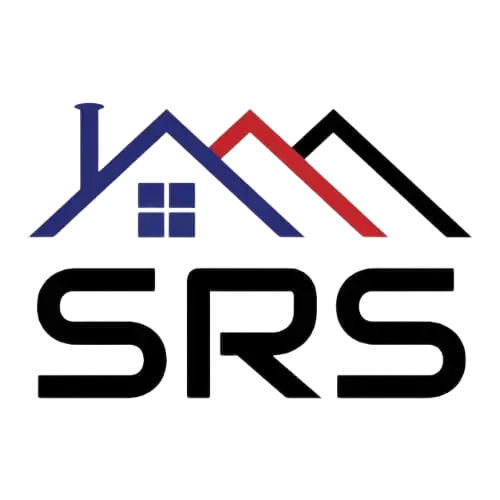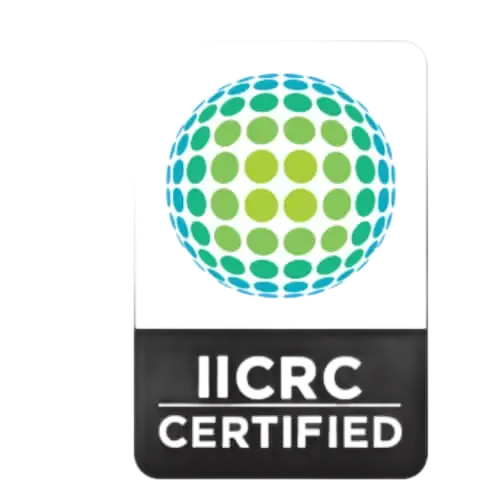Mold can be more than just a minor inconvenience in your home. It can lead to serious health problems and cause severe damage to your property if not addressed properly. Mold remediation is the process of removing and preventing the return of mold growth in indoor environments. This blog post will explore what mold remediation entails, when it is necessary, its effectiveness, the safety of the chemicals used, legitimacy of remediation companies, insurance coverage, and the risks of leaving mold untreated.
What Is Mold Remediation?
Mold remediation refers to the process of professionally cleaning up and treating mold in an indoor environment to ensure the health and safety of occupants and prevent further damage to a property. It goes beyond simply cleaning visible mold. Proper mold remediation involves identifying the source of moisture, containing the affected area, safely removing contaminated materials, cleaning, and disinfecting surfaces, and restoring the environment to a safe, non-harmful range.
Mold spores are naturally present in the air and can grow when they find a damp, warm environment. The goal of remediation is not to eliminate mold spores entirely (which is impossible); the goal of remediation is to return indoor mold levels to a normal, non-harmful level. This level is determined by conducting air quality assessments and comparing the air quality inside the home to the outside air quality. The air quality in your home should be as good, if not better than the air quality outside.
When Is Mold Remediation Necessary?
Mold remediation is necessary when you notice or suspect significant mold growth in your home. Here are some key signs that remediation may be needed:
· Visible mold on walls, ceilings, or other surfaces
· A persistent musty odor
· Water damage or flooding history
· Discoloration or staining
· Health symptoms like allergies, coughing, wheezing, or skin irritation
If mold covers more than ten square feet, the Environmental Protection Agency (EPA) recommends hiring a professional. Mold in HVAC systems, behind walls, or in other hidden areas also warrants professional remediation.
Additionally, if someone in your household has respiratory conditions, a compromised immune system, or mold allergies, it is especially important to remove mold promptly and thoroughly.
Will Mold Come Back After Remediation?
Mold can return after remediation if the root cause of moisture or water intrusion is not addressed. Mold thrives in damp environments, so even a small leak or high humidity can trigger regrowth. The EPA and IICRC have set an action level of 60% relative humidity, which is the point that mold can grow freely on walls without liquid water (i.e.: a leak).
Effective remediation includes fixing the underlying moisture problem—whether it is a roof leak, poor ventilation, plumbing issues, or basement humidity, as well as treating any visible mold damage with authorized chemicals. Professional mold remediation companies should conduct moisture assessments and make recommendations to prevent future problems.
Homeowners should also monitor humidity levels (ideally between 30-50%), ensure proper ventilation, and regularly inspect high-risk areas like bathrooms, basements, and kitchens.
Are Mold Remediation Chemicals Safe?
The safety of mold remediation chemicals depends on the products used and the expertise of the professionals applying them. Reputable companies use EPA-approved biocides and antimicrobial treatments that are specifically designed for indoor use and safe when applied correctly.
However, some individuals may be sensitive to certain chemicals or fumes. That is why it is important to:
- Ask the remediation company about the products they use (per the IICRC, remediation technicians should walk you through the warning label, showing you the chemicals and various warnings and treatment instructions.)
- Inform them of any sensitivities or allergies in your household
- Follow any guidance on vacating the premises during treatment
Many companies now offer non-toxic or eco-friendly options as well. Here at Superior Remediation Services, we prefer a plant-based option for the treatment of mold, which is much more tolerant to sensitive clients, or clients looking for an eco-friendly alternative to traditional mold treatments. It is our preferred choice, and has a pleasant, non-chemical odor.
Are Mold Remediation Companies Legitimate?
Like any industry, the mold remediation field includes both reputable professionals and less-than-honest operators. To ensure you are working with a legitimate company, consider the following:
- Certifications: Look for companies certified by organizations like the IICRC (Institute of Inspection Cleaning and Restoration Certification) or NORMI (National Organization of Remediators and Mold Inspectors).
- References and Reviews: Check online reviews and ask for client references.
- Detailed Estimates: A reputable company should provide a clear scope of work and cost estimate.
- Moisture Assessment: Legitimate professionals will find and address the source of moisture, not just treat the mold.
- No Pressure Tactics: Avoid companies that use scare tactics or pressure you into unnecessary services.
Hiring a qualified professional ensures the job is done thoroughly and reduces the risk of recurring mold issues.
Will Homeowners Insurance Pay for Mold Remediation?
Whether your homeowner’s insurance covers mold remediation depends on your policy and the cause of the mold. In general:
- Covered: If mold results from a covered peril, such as a burst pipe or accidental water damage, your policy may pay for remediation.
- Not Covered: Mold due to neglect, long-term leaks, or high humidity is typically not covered.
It is essential to read your policy carefully and talk to your insurance agent to understand your coverage. Some insurers offer mold endorsements or riders to expand protection. Document any damage thoroughly and act quickly when filing a claim to improve your chances of approval.
The Dangers of Not Having Mold Removed
Ignoring mold in your home can have dire consequences:
1. Health Risks: Mold exposure can cause or worsen respiratory conditions, including asthma, allergies, sinus infections, and even chronic fatigue. For vulnerable individuals, like infants, the elderly, or those with weakened immune system, the risks are even higher. Long term mold exposure can induce “Mold Sickness,” with symptoms comparable to a long-term flu or cold.
2. Structural Damage: Mold feeds on organic materials like wood, drywall, and insulation. Over time, it can compromise the structural integrity of your home, leading to costly repairs.
3. Decreased Property Value: Mold problems can significantly reduce a home's resale value and make it difficult to sell. Buyers may walk away or demand expensive remediation as a condition of sale.
4. Spread to Other Areas: Mold can quickly spread through spores in the air, contaminating other rooms and surfaces. The longer you wait, the more widespread and expensive the problem becomes.
5. Legal and Liability Issues: If you are a landlord or selling a home, failing to disclose or address mold problems can result in legal issues, fines, or lawsuits.
Final Thoughts
Mold remediation is a critical service that protects your health, home, and financial investment. While mold might seem like a surface-level nuisance, its potential impact runs deep. Knowing when to act, who to trust, and how to prevent recurrence puts you in control.
If you suspect mold in your home, do not wait. Seek a professional evaluation, fix the source of moisture, and address the problem early. It is a smart investment in your home and your health.
For more tips on home maintenance and safety, be sure to visit our blog or contact SRS with any questions about mold remediation services in your area.

Dillan Whitver
Owner of Superior Remediation Services and Remediation Specialist
Superior Remediation is a certified restoration and remediation company serving residential and commercial clients throughout Central Virginia. The foundation of our business is integrity, with the goal of providing superior service and deliverability on every job.




